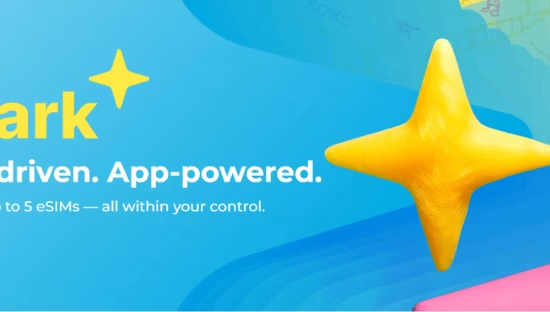
Who’s Winning the Battle for Digital Travelers — and Who’s Getting Left Behind
Travel is not just back — it is roaring. Not simply a rebound to 2019 levels, but a fundamental reshaping of how and why people move. There’s a hunger for meaning, novelty, and identity that didn’t exist with the same intensity before the pandemic. Millennials and Gen Z, in particular, see travel not as a luxury or a break from real life, but as a core part of who they are. And they’re willing to allocate a larger share of income toward that pursuit.
But a booming market doesn’t guarantee universal success. A rising tide does not lift all boats — especially not the ones tied to the dock. The real story today is the widening gap between travel brands that understand how the digital traveler thinks, and the brands that are still selling travel like it’s 2014. Some are evolving faster than the expectations of their customers. Others are losing relevance so quietly that they haven’t noticed the ground disappearing under them yet.
The companies that are winning this moment are the ones shifting from transaction to transformation. They are building journeys, not bookings. Value, not discounts. Insight, not retargeting. They treat travel as an emotional purchase — which it is.
The companies falling behind are doing the opposite. They treat travel like inventory.
The Experience Economy Has Redefined Travel
Today’s traveler doesn’t want to simply stay somewhere; they want to be someone while they’re there. Travel has become performative, yes — but it’s also become deeply personal. A trip is a story you tell, a part of your identity portfolio.
We’ve seen this in real numbers. The Taylor Swift Eras Tour didn’t just sell stadium seats; it spiked hotel prices across host cities by more than 150%. Formula One weekends now function like global cultural holidays. Art festivals, culinary weekends, fútbol derbies — these are becoming primary travel drivers, not add-ons.
The brands winning today understand that demand is shaped culturally, not seasonally. They build packages around moments, not markets. They watch not just traveler search volumes but cultural timelines. Their campaigns are fast, specific, and emotionally resonant.
The brands losing are still promoting “Spring Offers!” and “Book Now, Save 10%!” as though the traveler is waiting to be persuaded by the price of a room. They are selling accommodation when the traveler is buying identity.
AI Is Winning When It Removes Friction, Not When It Replaces People
There is a misconception that AI’s goal in travel is automation. But travelers do not crave a fully automated journey. They crave a frictionless one.
The smartest brands use AI to simplify, not to erase the human element.
Think of how Hopper predicts prices, or how Kayak simplifies decision-making by clarifying when to buy and when to wait. These tools reduce stress. They create confidence.
Hotel groups piloting AI service assistants are learning the golden rule:
AI should answer the easy questions — so that humans can answer the meaningful ones.
The winners are those who design human support as a premium touchpoint, not an expensive liability. When something goes wrong on a trip, the traveler doesn’t want a chatbot. They want reassurance, speed, and empathy. AI can’t do that — at least not yet.
The brands being left behind are the ones that saw AI as a way to cut support costs. They built digital walls around themselves. They replaced dialogue with loops. They made their guests feel alone when they most needed help. And nothing destroys loyalty faster than that.
Curation Is Replacing Advertising
As third-party cookies disappear, the travel brands that depended on blunt targeting are entering a free fall. The next era belongs to companies with first-party data and the intelligence to act on it.
But “data” alone isn’t the advantage.
Curation is.
Curation means understanding a traveler well enough to show them the right options — not a thousand options. It means taste. Context. A point of view.
Trip.com has done this exceptionally well by expanding not in all directions at once, but corridor by corridor, market by market, culture by culture. They’re not trying to win the world. They’re winning relevance.
Meanwhile, many hotel groups and regional airlines still treat their website like a brochure. Static. Generic. Bland. The only reason a traveler returns is habit — and habit is fragile. Especially when there are more intelligent, more helpful options at every turn.
Digital Responsibility Is Becoming a Traveler Preference — and a Brand Differentiator
Sustainability used to mean telling people to reuse their towels. That era is over.
Travelers now expect:
- Carbon transparency
- Responsible data use
- Energy-efficient digital operations
The brands winning here are not the ones shouting the loudest, but the ones proving progress with clear, verifiable actions. They are making sustainability visible in the digital layer, not just the physical one.
Are the brands losing?
They are the ones still treating sustainability as a label instead of a framework. A badge instead of a build.
Travelers notice. And they talk.
Who’s winning — short list (for now)
- Booking.com: Product-led growth via Connected Trip + fintech, steady AI infusion, and relentless UX tuning. Needs to keep hotels onside as legal and policy headwinds mount.
- Trip.com: Compounding regional wins, smart B2B moves, and pragmatic localization. Less hype, more throughput.
- Agoda (regional): AI features tied to real markets and campaigns, not just press releases.
- Expedia: Still a powerhouse with enviable supply and merchandising — but 2025 was a reminder that loyalty optics matter as much as loyalty math.
Who’s getting left behind
- Any brand still selling “search, scroll, regret.” If your experience looks like 2019 — infinite lists, hidden fees, rigid change policies — AI meta-layers will pass you by.
- Loyalty laggards. If members can’t understand what they earn (and when), they’ll default to whoever bundles more value into the same click path.
- Single-asset marketplaces with no cross-sell strategy. Great inventory is table stakes; connected outcomes win share.
The human truth that decides it
Expedia’s research this year says half of consumers view travel as more vital than five years ago, and nearly 9 in 10 plan a leisure trip in the next 12 months. Demand isn’t the problem. The problem is confidence: “Will this choice work for me, and can I fix it fast if plans change?” Brands that answer that — in the product, not the press release — are taking the win.
The Divide Is Becoming Permanent
This is the uncomfortable part.
The brands winning now are pulling away — not inching ahead.
They are compounding advantages in data, experience design, trust, loyalty, and product depth. Every month the gap widens.
The brands losing are not simply behind — they are becoming forgettable.
And once a travel brand becomes forgettable, its recovery cost is enormous.
Travelers do not return to brands that made them feel like a booking ID.
Final thoughts
The future of travel belongs to brands that understand this simple truth:
Travel is emotional.
Connection is emotional.
And loyalty is emotional.
Technology is the vehicle — not the driver.
The winners will be the companies that combine:
- Curation with clarity
- AI with empathy
- Personalization with permission
- Sustainability with proof
- And storytelling with substance
The companies getting left behind will be the ones that think they are selling rooms, seats, and tours — when everyone else is selling identity, anticipation, and memory.
Next edition: we’ll look at the emerging brands stepping up — reach out if your company deserves to be here.
Sandra Dragosavac
Driven by wanderlust and a passion for tech, Sandra is the creative force behind Alertify. Love for exploration and discovery is what sparked the idea for Alertify, a product that likely combines Sandra’s technological expertise with the desire to simplify or enhance travel experiences in some way.









